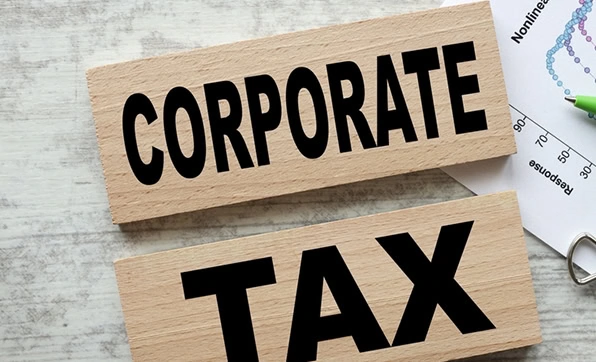The advent of corporate tax within the UAE, powerful June 1, 2023, has caused diverse misconceptions, mainly concerning groups working in Dubai’s Free Zones. This article will discuss how Understanding those common misconceptions is vital for marketers and the role of corporate tax consultant in Dubai for buyers seeking to navigate the brand-new tax panorama effectively.

Common Misconceptions About Corporate Tax in Dubai Free Zones
1. All Free Zone Companies Must Pay 9% Corporate Tax
One of the most frequent myths is that each organization working inside Free Zones is actually subject to a flat 9% corporate tax. This false impression overlooks the concept of Qualifying Free Zone Persons (QFZPs), that are entities that could nonetheless benefit from a 0% corporate tax-rate on qualifying income, provided they meet specific situations set via means of the UAE tax authorities. Non-qualifying income, however, may be taxed at 9 %.
2. Corporate Tax and VAT Are Interchangeable
Another common misconception is the perception that corporate tax and value-added tax (VAT) are equal. VAT is an intake tax levied at a rate of 5% on items and services, relevant at every degree of the delivery chain. In contrast, corporate tax applies to income generated via means of groups. It is important to understand that those taxes serve unique functions and are calculated separately.
3. Corporate Tax Discriminates Based on Nationality
Some marketers mistakenly agree that the brand new corporate tax system discriminates primarily based totally on the nationality of commercial enterprise owners. In reality, the UAE’s corporate tax regulation applies uniformly to all groups working inside its jurisdiction, irrespective of possession nationality. This guarantees a level playing field for both the local and foreign entities.
4. Income Earned Abroad Is Taxed on the Same Rate as Local Income
There is a mis-conception that earnings generated via means of Free Zone organizations from worldwide operations may be taxed further than earnings earned inside Dubai. However, QFZPs can preserve their tax-exempt status on qualifying income so long as they adhere to specific operational guidelines. The 9% tax by and large applies to non-qualifying income derived from transactions with mainland groups or different non-qualifying activities.
5. The Existence of Tax-Free Zones Is Threatened
Many worry that the advent of corporate tax alerts a quit to the tax advantages traditionally loved via means of free zones. This subject is unfounded; the federal government has emphasized their dedication to retaining those zones as crucial additives of Dubai’s financial strategy. They maintain to play a vital role in attracting overseas funding and fostering innovation throughout diverse sectors.
6. All Income Below AED 375,000 Is Exempt from Tax
Another common misconception is that each group can experience a 0% corporate tax price on earnings as much as AED 375,000. While this is applicable to many groups outside of free zones, QFZPs should meet unique standards to qualify for this exemption. If they fail to fulfill those standards or earn non-qualifying earnings, they’ll be in the usual 9% rate.
7. Small business relief applies automatically.
Some agree that small groups working in Free Zones automatically qualify for alleviation below the brand new corporate tax regime if their sales fall beneath AED three million. However, this alleviation isn’t always relevant to QFZPs; they should sign up for corporate tax and observe all legal requirements, such as retaining good enough economic substance within the UAE.
Conclusion
Navigating the complexities of corporate tax in Dubai’s Free Zones calls for a clear knowledge of the policies and exemptions available. Entrepreneurs should hire the corporate tax consultant dubai free zone to dispel those not so common misconceptions to make knowledgeable choices about their commercial enterprise operations within the UAE. By spotting that not all Free Zone organizations may be subjected to a flat 9% price and knowing the differences among unique kinds of earnings and taxes, groups can higher role themselves for fulfillment on this evolving financial panorama.
In summary, even as the advent of corporate tax might also additionally appear daunting, it additionally gives possibilities for people who recognize the way to leverage the advantages related to working in Dubai’s Free Zones effectively.
FAQ
Are businesses in Dubai free zones completely exempt from corporate tax?
No, while many enjoy tax incentives, some may still be subject to corporate tax depending on their activities and income levels.
Do free zone companies need to file tax returns?
Yes, companies in free zones must file tax returns annually, even if they benefit from corporate tax exemptions.
Can free zone businesses operate in the mainland without losing tax benefits?
Yes, free zone businesses can operate in the mainland, but they must comply with specific regulations to maintain tax incentives.
Is the corporate tax rate the same for all free zones?
No, different free zones may offer varying tax rates and incentives, so it’s essential to check specific regulations for each zone.

